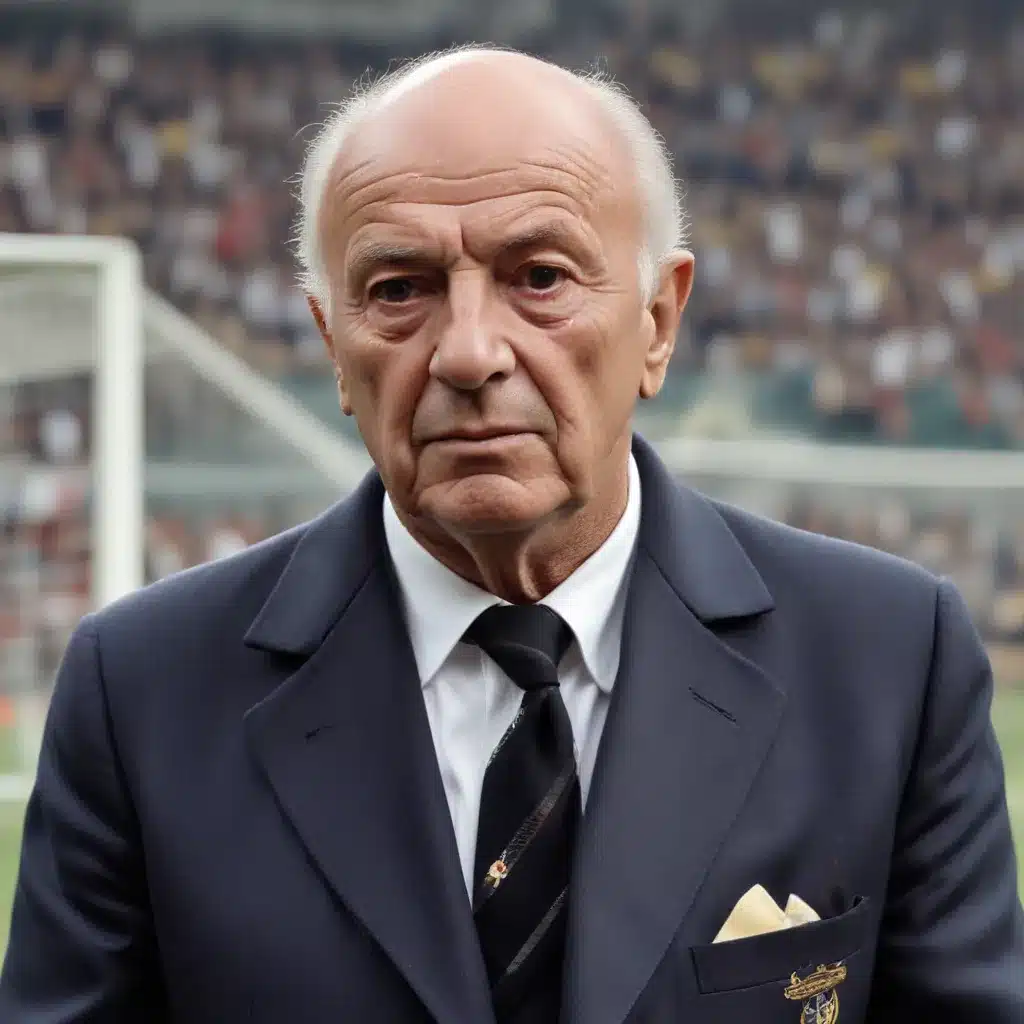
Spanish Football Heritage, Argentine Roots
Alfredo Di Stéfano is a name that looms large over the history of both Spanish and Argentine football. As one of the greatest players to ever grace the game, Di Stéfano’s remarkable career and influence stretched far beyond the confines of the Bernabéu and the pitches of Madrid. His Spanish-Argentine heritage and the unique tactical acumen he developed over decades in the sport would go on to shape the landscape of Brazilian football coaching for generations.
Born in 1926 in Buenos Aires to Italian immigrant parents, Di Stéfano’s early years were spent honing his skills on the dusty pitches of the Barracas barrio. After breaking through at River Plate, a move to the lucrative Colombian league with Millonarios in 1949 set the stage for his European odyssey. While Barcelona initially secured his signature, a last-minute intervention from Real Madrid president Santiago Bernabéu saw the “Blonde Arrow” end up donning the famous white shirt instead.
What followed was an unparalleled era of success at the Bernabéu. Di Stéfano inspired Real Madrid to five consecutive European Cup triumphs between 1956 and 1960, cementing his status as one of the game’s all-time greats. His seamless transition between attacking midfield and centre-forward roles, combined with an unrelenting work ethic, made him the embodiment of the modern complete footballer.
Coaching in Brazil
While Di Stéfano’s playing career reached its apex in Spain, his coaching odyssey would later take him to Brazil, a country whose vibrant football culture and rich tactical traditions would leave an indelible mark on the Argentine-Spaniard.
In the 1960s, Di Stéfano brought his unique blend of possession-based, fluid attacking football to the Brazilian game, serving as manager of Millionários, São Paulo, and Botafogo. His meticulous attention to detail and emphasis on player development made a lasting impression, as he sought to nurture the next generation of Brazilian stars.
Di Stéfano’s tactical innovations were particularly influential, as he encouraged his teams to maintain control of possession and create overloads in advanced areas – a precursor to the tiki-taka style that would later dominate world football. His ability to adapt his methods to the Brazilian context, blending the flair and creativity of the local game with a more structured, European-influenced approach, made him a revered figure among Brazilian coaching circles.
Prominent Brazilian Coaches and National Team Impact
Di Stéfano’s legacy in Brazilian football can be seen in the careers of many prominent coaches who followed in his footsteps. Telê Santana, the mastermind behind Brazil’s triumphant 1982 World Cup campaign, was deeply influenced by Di Stéfano’s emphasis on possession-based, attacking football. Santana’s fluid 4-2-2-2 system and the way his teams dominated the ball owed much to the Argentine-Spaniard’s innovative approach.
Similarly, Luiz Felipe Scolari, the architect of Brazil’s 2002 World Cup success, was another coach who drew inspiration from Di Stéfano’s tactical acumen. Scolari’s pragmatic yet attacking philosophy, which blended defensive solidity with incisive counterattacking, reflected Di Stéfano’s own ability to find the right balance between structure and flair.
Beyond the club game, Di Stéfano’s impact can also be seen in the success of the Brazilian national team. His emphasis on possession, movement, and technical excellence laid the foundation for the iconic Brazilian teams of the 1970s and 1980s, whose free-flowing, joyful football captivated the world. The grassroots development initiatives he helped champion in Brazil also played a crucial role in unearthing and nurturing the country’s abundant footballing talent.
Tactical Innovations and Contemporary Relevance
At the heart of Di Stéfano’s coaching legacy was his pioneering approach to the game, which foreshadowed many of the tactical trends that would dominate modern football. His possession-based, tiki-taka style of play anticipated the work of Johan Cruyff and Pep Guardiola, while his fluid, interchangeable attacking patterns laid the groundwork for the positional play that has become a hallmark of the contemporary game.
Di Stéfano’s integration of sports science and data analytics into his coaching methodology was also ahead of its time. He was meticulous in his player evaluation and match preparation, using detailed tactical analysis to fine-tune his teams’ strategies and maximise their strengths. This holistic, evidence-based approach to coaching has become increasingly prevalent in the modern game, with top-level clubs and national teams investing heavily in performance data and analytics.
Lasting Impression and Enduring Relevance
Alfredo Di Stéfano’s transformative impact on Brazilian football coaching cannot be overstated. Through his innovative tactical approach, his emphasis on player development, and his unwavering commitment to attacking, possession-based football, he left an indelible mark on the Brazilian game that continues to resonate to this day.
The legacy of Alfredo Di Stéfano is one of pioneering vision, unwavering dedication, and a relentless pursuit of excellence. His Spanish-Argentine heritage and the unique blend of influences he brought to the Brazilian game have shaped the trajectory of the sport in the country, inspiring generations of coaches to embrace a bold, progressive style of play that celebrates the artistry and creativity of the beautiful game.
As the Brazilian football landscape continues to evolve, the enduring relevance of Di Stéfano’s coaching philosophy is a testament to his enduring impact on the global game. His visionary approach and unwavering commitment to excellence continue to inform and inspire the next generation of Brazilian football coaches, ensuring that his lasting legacy will continue to shape the future of the sport for years to come.

